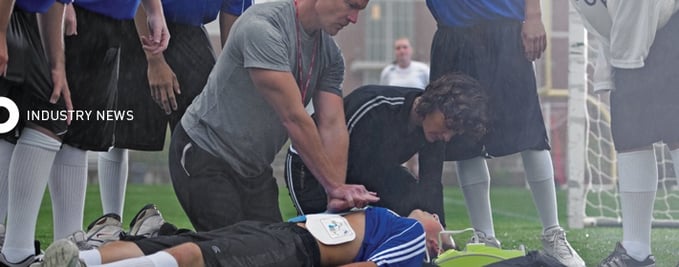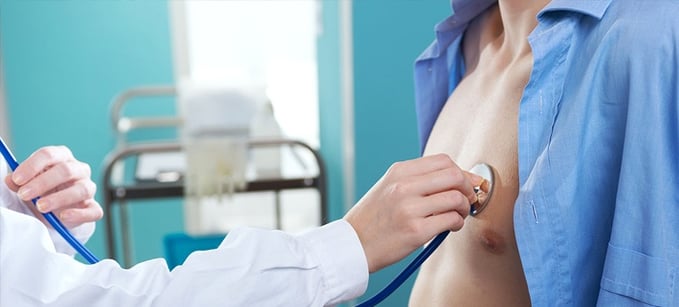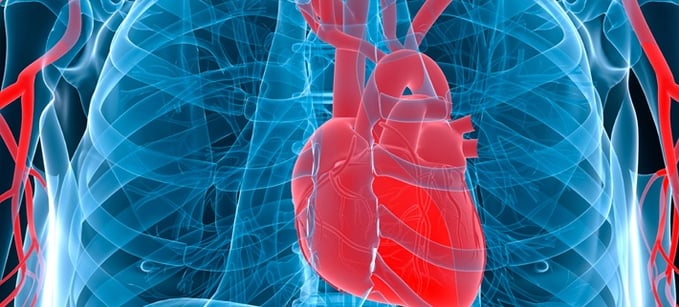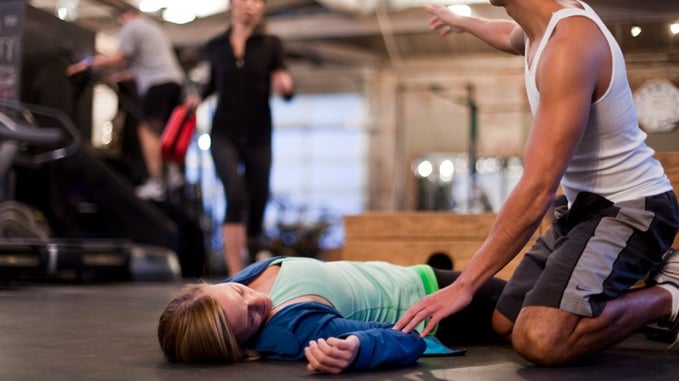What is Sudden Cardiac Arrest?

A seemingly healthy person shouldn't fall to the ground from heart disease, yet every now and then, sudden cardiac arrest strikes a healthy individual with potentially fatal results. The Cleveland Clinic reports sudden cardiac death strikes between one in 100,000 athletes younger than 35 with most of these victims being male. One of the most famous deaths due to sudden cardiac arrest was Pete Maravich's passing in 1988.
What is sudden cardiac arrest and what causes it?
A Definition of Sudden Cardiac Arrest
An electrical issue in the heart is usually responsible for sudden cardiac arrest. The heart's electrical signs that control its ability to pump blood malfunction. The heart beats too fast, causing the ventricles (the heart's pumping chambers) to flutter rather than pump blood in the usual manner. Such a rhythm disruption, known as ventricular fibrillation, occurs when there is a heart condition that was not detected.
Alternatively, a heart attack results from an issue with heart circulation. Heart attacks occur when there is a blockage within the coronary artery that reduces or even stops the flow of blood to the heart, damaging this all-important muscle. It is possible for a heart attack to lead to an electrical issue in the heart that in turn causes sudden cardiac arrest.
Time is of the Essence
If someone in your vicinity is suffering cardiac arrest, you and your staff should know each second counts. Medical treatment must be applied within a couple of minutes or less. Otherwise, the risk of death skyrockets. This is precisely why gyms and other facilities place an automated external defibrillator on the walls. If the individual in question is not treated within minutes, he or she will likely die in what is referred to as sudden cardiac death.

Why Sudden Cardiac Arrest Occurs
Most people know heart disease is caused by high cholesterol, high blood pressure, diabetes and other issues. However, few people are aware of the specific causes of sudden cardiac arrest. The cause of this heart problem must be distinguished from those of regular heart disease. Sudden cardiac arrest results from rare heart disorders, genetics, over-exertion during physical activity and poor health.
Some people inherit a genetic heart condition from a parent. The top cause is hypertrophic cardiomyopathy (HCM). This is a disorder characterized by the heart muscles thickening. If the heart becomes too thick, its inner layers will not be able to receive enough blood during exercise. HCM is quite rare, affecting about 0.1 percent of the population or less.
Those who have a congenital abnormality of the coronary artery are also at an elevated risk for sudden cardiac arrest. In some cases, like that of the late great basketball player Pete Maravich, the arteries are not properly positioned. Long QT syndrome, an inherited heart electrical disorder and myocarditis, a heart inflammatory condition, can also cause sudden cardiac arrest.
Some of those who are especially tall and lanky have Marfan syndrome, a disorder of the body's connective tissue that can lead to sudden cardiac arrest. These individuals are at risk for tears within the blood vessels. The risk for a sudden cardiac arrest increases when blood pressure spikes, as occurs during exercise.

Athletes and Workout Warriors of all Types Should be Screened for Sudden Cardiac Arrest
Those who exercise should be screened by an experienced physician for heart health. The American Heart Association advises a thorough 12-step screening for those who participate in high school and college athletics. Heart health screenings should include a review of family history, medical history and a physical exam. The doctor will check for signs of the forementioned Marfan syndrome along with heart murmurs, blood pressure issues etc. If you experience any type of chest pain, fainting or other chest issues, let your doctor know.

Related Content:
Empower your staff and reassure your community with our FREE downloadable cleaning and disinfecting guides for fitness centers, educational settings, hospitality facilities and more.
Topics from this blog: industry news
Back




